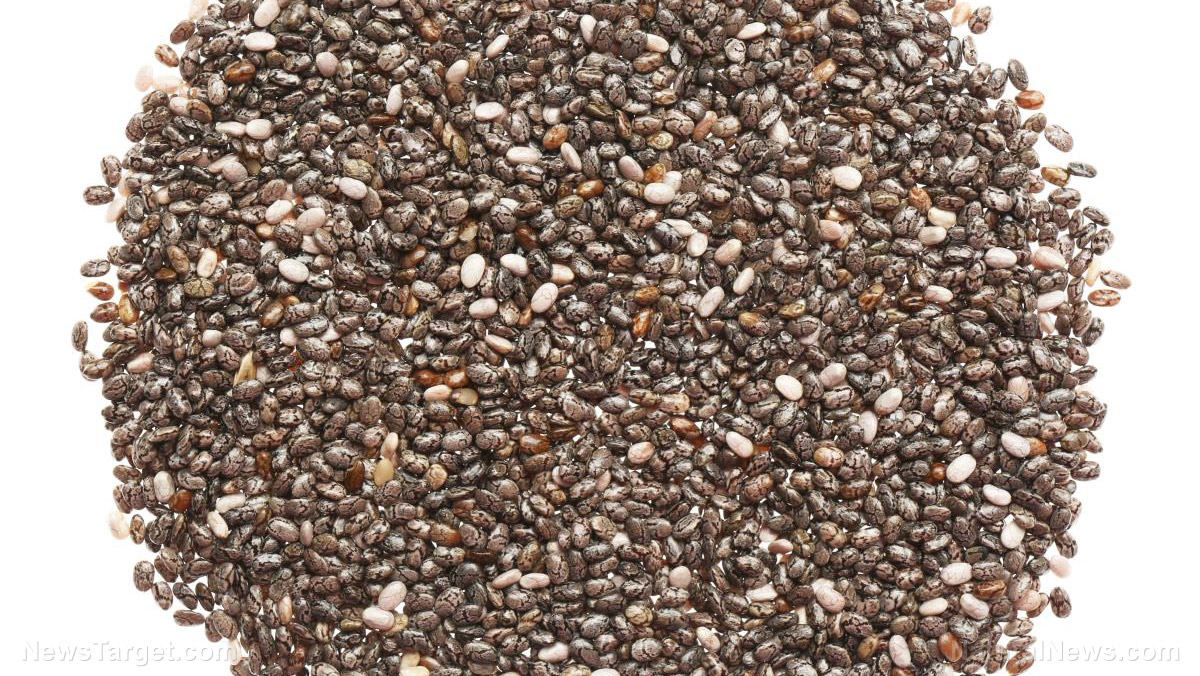Study reveals that intake of dietary grape powder can help promote cytokine production
05/09/2019 / By Zoey Sky

Cytokines in the human body act as molecular messengers between your cells. According to a study, dietary grape powder can be used to promote cytokine production.
This is good news because cytokines interact with immune cells to regulate your body’s response to disease and infection.
The study, which was published in the journal Nutrition Research, was conducted by researchers from the University of California, Davis.
For the study, the researchers tested the dietary grape powder by analyzing its effects on obese volunteers.
Data from the randomized, double-blind crossover study revealed that ingestion of dietary grape powder by the obese participants increased the production of pro-inflammatory cytokines, specifically interleukin 1 beta (IL-1B) and interleukin-6 (IL-6), by peripheral blood monocytes. (Related: Obesity can make breast cancer cells more aggressive.)
Cytokines have various functions in the body. Some cytokines stimulate the production of blood cells; others mostly function as part of different processes, such as development, tissue maintenance, and repair. There are also cytokines whose functions are limited to the immune system.
There are more specific names given to cytokines based on either the type of cell that makes them or the action they have in the body. For example, interleukins are made by one leukocyte but act on other leukocytes.
IL-1B is a pro-inflammatory cytokine that is expressed by various cells, such as macrophages, monocytes, natural killer (NK) cells, and neutrophils. This cytokine belongs to the IL-1 family that includes the IL-1a, and IL1-RN genes. The caspase 1 (CASP1/ICE) gene proteolitycally activates IL-1B. CASP1/ICE is involved in the proliferation, differentiation, and apoptosis of cells. IL-1B activation of cyclooxygenase-2 (PTGS2/COX2) causes inflammatory hypersensitivity. IL-1B is also linked to conditions like septic shock and wound healing.
IL-6 is an endogenous chemical that is active during inflammation and B cell maturation. This cytokine is an immune protein and a pyrogen. IL-6 is responsible for the fever caused by autoimmune, infectious, and non-infectious diseases. The body produces IL-6 in areas with either acute or chronic inflammation. Experts believe that IL-6 also causes increased susceptibility to diabetes mellitus and the systemic form of juvenile rheumatoid arthritis.
Grape powder supplementation and cytokine production
In their previous study, the researchers reported that the consumption of grape powder by obese people increased IL-1B and IL-6 production by peripheral blood monocytes after bacterial lipopolysaccharide stimulation. Here, they used data from a 24-hour dietary recall to confirm whether the increase in cytokine production was due to differences in dietary patterns or the intake of grape powder. They hypothesized that it was the dietary grape powder that caused the event.
After analyzing the dietary recall data, they reported that there were no notable differences between the total energy, carbohydrates, fat, and protein intakes of the obese participants who consumed grape powder and those of the subjects who were given a placebo. They based this on the participants’ consumption of the following foods:
- Dairy
- Eggs
- Fish
- Grains
- Meats and poultry
- Nuts and seeds
- Vegetables
For the volunteers who were given the grape powder, the recall data showed a decrease in their intake of butyric and capric acids. In addition, the decrease in their intake of cheese and fruit was also linked to their intake of dietary grape powder.
The researchers concluded that the participants’ diets did not influence the production of cytokines by monocytes. Instead, consumption of dietary grape powder led to the increase in cytokine production after lipopolysaccharide-stimulation of monocytes in the obese participants.
Learn more about other findings on food cures and the health benefits of dietary supplements at Scientific.news.
Sources include:
Tagged Under: #nutrition, alternative medicine, cytokine production, cytokines, diet, dietary grape powder, fatty acids, fightobesity, food science, grape powder, grapes, immune system, immunity, inflammation, lipopolysaccharide, natural cures, natural medicine, obese, obesity, prevention, remedies, research, supplements



















